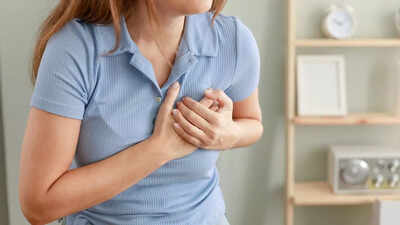ARTICLE AD BOX

While heart attacks are generally more common in older adults, certain lifestyle habits and changes can increase the risk in teenagers as well. Poor diet, lack of exercise, smoking, drug use, and high stress levels can contribute to early heart problems, sometimes leading to heart attacks even at a young age.
These lifestyle factors can damage the heart and blood vessels over time, making it harder to detect warning signs early. Because teens and their caregivers may not expect heart issues at this age, symptoms can be overlooked, increasing the risk of serious complications or delayed treatment. Awareness and healthy habits are essential to reduce these risks.
Common symptoms of heart attacks in teenagers
Heart attacks in teens may present with symptoms that differ slightly from adults or can sometimes be subtle. Key symptoms to watch for include:1. Chest pain or discomfortThis is the most common symptom.
Teens may feel pressure, tightness, squeezing, or a heavy sensation in the center of the chest. The pain can last for a few minutes or come and go. It’s important not to ignore this symptom, even if it feels mild or intermittent.2. Shortness of breathDifficulty breathing or feeling like you can’t get enough air, even while resting, can signal a heart problem. This may happen suddenly or gradually worsen over time.3. Pain in other areasDiscomfort may spread beyond the chest to the arms (often the left arm), back, neck, jaw, or stomach.
These referred pains can sometimes be mistaken for muscle strain or indigestion.4. Fatigue or weaknessUnusual tiredness or feeling weak without an obvious reason may be a warning sign. This symptom can interfere with daily activities and should be taken seriously.5. Dizziness or lightheadednessFeeling faint, dizzy, or like you might pass out can indicate reduced blood flow to the brain due to heart problems. It may also be accompanied by a rapid or irregular heartbeat.6. Nausea or sweatingSome teens may experience nausea, vomiting, or cold sweats during a heart attack. These symptoms often occur suddenly and can be mistaken for other illnesses like the flu
Why recognising these symptoms matters
Teenagers and parents often overlook or misinterpret these symptoms as less serious issues such as anxiety, indigestion, or muscle strain. However, ignoring early signs can delay treatment and increase the risk of serious heart damage or even sudden cardiac arrest.
When to seek immediate medical help
If any of these symptoms appear, especially chest pain or shortness of breath, it is critical to seek emergency medical care immediately. Early intervention can prevent severe complications.Also read | Not all chest pain is a heart attack: It could be angina; Understanding its signs, causes, and key difference



.png)
.png)
.png)
















 2 hours ago
4
2 hours ago
4








 English (US) ·
English (US) ·